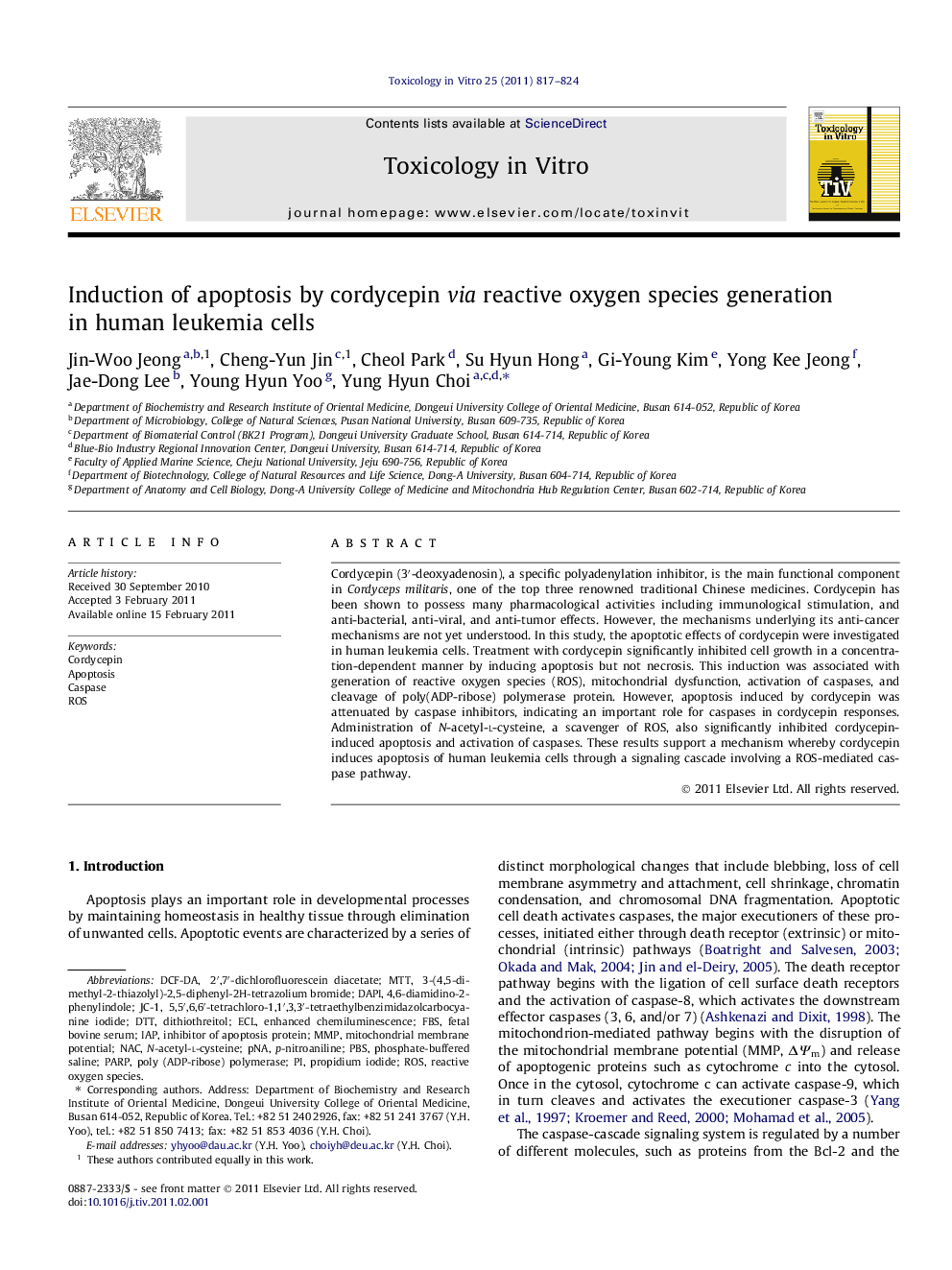| Article ID | Journal | Published Year | Pages | File Type |
|---|---|---|---|---|
| 2602816 | Toxicology in Vitro | 2011 | 8 Pages |
Cordycepin (3′-deoxyadenosin), a specific polyadenylation inhibitor, is the main functional component in Cordyceps militaris, one of the top three renowned traditional Chinese medicines. Cordycepin has been shown to possess many pharmacological activities including immunological stimulation, and anti-bacterial, anti-viral, and anti-tumor effects. However, the mechanisms underlying its anti-cancer mechanisms are not yet understood. In this study, the apoptotic effects of cordycepin were investigated in human leukemia cells. Treatment with cordycepin significantly inhibited cell growth in a concentration-dependent manner by inducing apoptosis but not necrosis. This induction was associated with generation of reactive oxygen species (ROS), mitochondrial dysfunction, activation of caspases, and cleavage of poly(ADP-ribose) polymerase protein. However, apoptosis induced by cordycepin was attenuated by caspase inhibitors, indicating an important role for caspases in cordycepin responses. Administration of N-acetyl-l-cysteine, a scavenger of ROS, also significantly inhibited cordycepin-induced apoptosis and activation of caspases. These results support a mechanism whereby cordycepin induces apoptosis of human leukemia cells through a signaling cascade involving a ROS-mediated caspase pathway.
